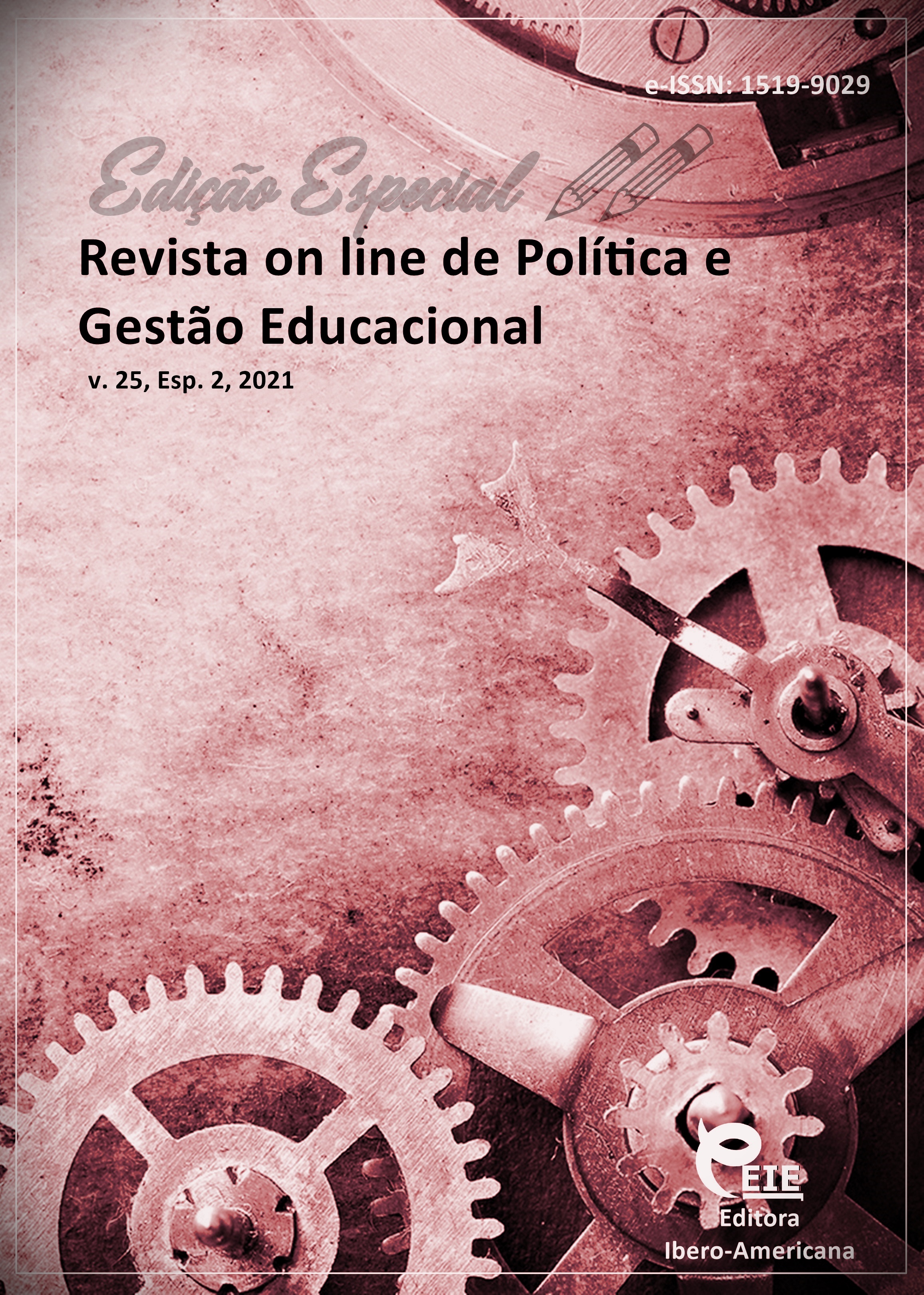Princípios da educação inclusiva e sua importância na sociedade moderna
DOI:
https://doi.org/10.22633/rpge.v25iesp.2.15271Palavras-chave:
Inclusão, Educação, Meio social, Socialização, Adaptação, Pessoa com deficiênciaResumo
A necessidade de uma profunda reestruturação do sistema educacional na Rússia se deve aos processos objetivos de transformação da sociedade. Considerando que o sistema educacional moderno deve atender às necessidades sociais de nosso tempo, e proporcionar um futuro qualitativamente novo, para isso é aconselhável considerar os processos que estão acontecendo agora em nossas vidas, bem como o que os causou no passado e como eles se desenvolverão no futuro. As respostas a essas perguntas podem se tornar a base para determinar passos aceitáveis e racionais no desenvolvimento de um novo sistema educacional (incluindo pessoas com necessidades especiais), que represente a geração mais jovem e para ela é necessário garantir uma vida digna no futuro. Neste artigo, os autores destacaram os princípios básicos da educação inclusiva. Os autores argumentam que a organização do processo educacional segundo esses princípios possibilitará transformar a pessoa com deficiência em um sujeito capaz de se tornar um participante de pleno direito das atividades educacionais.
Downloads
Referências
AFONKINA, Y. A. Principles of inclusive education in the paradigm of social interaction. Humanitarian Scientific Bulletin, v. 11, p. 16-20, 2017.
ALISULTANOVA, E. D.; BISULTANOVA, A. A. Main aspects and principles of using multimedia technologies in inclusive education. Bulletin of GGNTU. Humanities and Socio-Economic Sciences, v. 15, n. 2-16, p. 49-54, 2019.
BABANOVA, E. M. Inclusive education: basic principles, history of formation and experience of the Moscow State University of Economics. Man. Society. Inclusion, v. 3, n. 23, p. 127-132, 2015.
BETKER, L. M. Principles of inclusive education of children with disabilities in secondary schools. Bulletin of Ugrovology, v. 3, n. 18, p. 92-97, 2014.
BORZOVA, O. A. Principles of inclusive education in a modern school. Bulletin of the Institute of Human Education, v. 2, p. 10-13, 2020.
ESENGULOVA, M. M.; RAIMBEK, K. A. Principles, problems and the future of inclusive education principles, problems and the future of inclusive education. Bulletin of the Kyrgyz State University named after I. Arabaev, n. 1, p. 81-85, 2018.
GOCHOSHVILI, N. G. Inclusive education: characteristics, essence, principles. Bulletin of Science and Education, v. 12-1, n. 66, p. 98-101, 2019.
KHUTORSKOY, A. V. The principle of human conformity in inclusive education. Bulletin of the Institute of Human Education, v. 1, p. 6, 2019.
KNYAZKINA, O. A.; KNYAZKINA, I. A. On the principles of inclusive education. Bulletin of Scientific Conferences, v. 12-1, n. 16, p. 69-70, 2016.
KOROTKEVICH, A. A. Approaches and principles of inclusive education in teaching children with special needs. News of the Baltic State Academy of Fishing Fleet: Psychological and Pedagogical Sciences, v. 1, n. 51, p. 229-232, 2020.
LYUBIMOVA, M. A. Principles of inclusive education. Bulletin of the Voronezh Institute of High Technologies, v. 14, p. 245-246, 2015.
MIRZAGITOVA, A. L.; ILIN, A. G.; IBATOVA, A. Z. The role of knowledge and peda gogical communication in modern society. QUID: Investigación, Ciencia y Tecnología, n. 1, p. 1613-1617, 2017.
OPRYSHKO, A. A.; ORZHAKHOVSKAYA, I. Y. Problems of introducing inclusive education in a society that implements humanistic principles. Culture. The Science Integration, v. 3, n. 27, p. 91-96, 2014.
PARINOVA, G. K.; YAKSA, N. V. Inclusive education: modern approaches, models, principles. Problems of Modern Pedagogical Education, v. 45-1, p. 212-221, 2014.
TIMOSHENKO, K. O.; SHUMILOVA, E. A. Formation of an inclusive culture of a teacher as a factor in the development of inclusive education in Russia. In: ASOU Conference: a collection of scientific papers and materials of scientific and practical conferences. 2020.
ZAMASHNYUK, E.V. Differentiation of teaching children with visual impairments in inclusive education. Eurasian Union of Scientists, v. 8-6, n. 53, p. 18-21, 2018.
Downloads
Publicado
Como Citar
Edição
Seção
Licença
Copyright (c) 2021 Revista on line de Política e Gestão Educacional

Este trabalho está licenciado sob uma licença Creative Commons Attribution-NonCommercial-ShareAlike 4.0 International License.
Manuscritos aceitos e publicados são de propriedade da Revista on line de Política e Gestão Educacional. É vedada a submissão integral ou parcial do manuscrito a qualquer outro periódico. A responsabilidade do conteúdo dos artigos é exclusiva dos autores. É vedada a tradução para outro idioma sem a autorização escrita do Editor ouvida a Comissão Editorial Científica.











